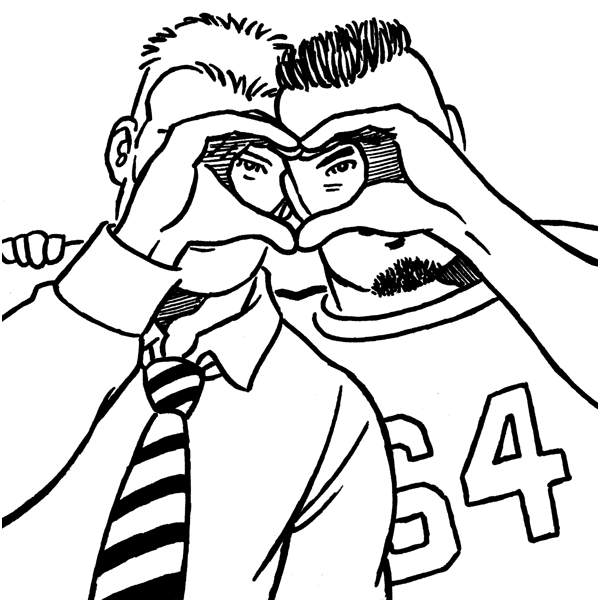A personal blog by a graying (mostly Anglo with light African-American roots) gay left leaning liberal progressive married college-educated Buddhist Baha'i BBC/NPR-listening Professor Emeritus now following the Dharma in Minas Gerais, Brasil.
Wednesday, May 11, 2022
Via Dhamma Wheel | Right Speech: Refraining from Frivolous Speech
Refraining from Frivolous Speech
|
|
|
|
|
|
|
One week from today: Refraining from False Speech
Share your thoughts and join the conversation on social media
#DhammaWheel
Questions? Visit the Dhamma Wheel orientation page.
Via Daily Dharma: Overthrowing Ignorance
Ignorance
is like the king, and clinging attachment and hostility are his
ministers. To rid ourselves of the king’s minions we must get rid of the
king. And so it is of greatest importance to identify ignorance
properly.
Geshe Sonam Rinchen, “Like a Pig In…”
CLICK HERE TO READ THE FULL ARTICLE
Via Ram Dass - Love Serve Remember Foundation -- Words of Wisdom - May 11, 2022 💌
“I certainly think that there are ways of using energies in the universe to extend the duration of physical life. Whether or not one wants to do that is another question; whether one hears it to be in the harmony of the way of things. The deeper I get into parts of my identity, the less I am attached to keeping this physical body eternally – because it just seems like a certain classroom or a level and I really find that there are more interesting aspects of existence beyond that of incarnation in a physical body.”
- Ram Dass -
Tuesday, May 10, 2022
Via Daily Dharma: Why We Need Sangha
Many
have said to me that they do not need Sangha. My response has been,
‘Then where will you go when you begin to experience liberation? Who
will know the journey you have taken and your vow to be awake?’
Interview with Zenju Earthlyn Manuel by Tricycle,
“Difference and Harmony: An Interview with Zenju Earthlyn Manuel”
CLICK HERE TO READ THE FULL ARTICLE
Via Dhamma Wheel | Right Intention: Cultivating Equanimity
Cultivating Equanimity
|
|
|
|
|
|
|
One week from today: Cultivating Lovingkindness
Share your thoughts and join the conversation on social media
#DhammaWheel
Questions? Visit the Dhamma Wheel orientation page.
Monday, May 9, 2022
Via Dhamma Wheel | Right View: Understanding the Noble Truth of the Way to the Cessation of Suffering
Understanding the Noble Truth of the Way to the Cessation of Suffering
|
|
|
|
|
|
|
One week from today: Understanding the Noble Truth of Suffering
Share your thoughts and join the conversation on social media
#DhammaWheel
Questions? Visit the Dhamma Wheel orientation page.
Via Daily Dharma: A Most Essential Journey
If,
like the Buddha, we are to succeed in realizing our full humanity, we
have to let go of what lies between us and our authentic selves. Hard as
it may be to undertake, this journey is the most essential and human of
all, a fulfillment of our story as travelers on this earth.
Ann Tashi Slater, “Leaving the Palace”
CLICK HERE TO READ THE FULL ARTICLE
Sunday, May 8, 2022
Via Tricycle // Ocean Vuong
Getting Close to the Terror with Ocean Vuong
In this episode of Life As It Is, Tricycle editor-in-chief James Shaheen and co-host Sharon Salzberg sit down with Buddhist poet Ocean Vuong to discuss his new collection, Time Is a Mother.
Writing through Loss
Writing is a way of grieving for Ocean Vuong, the 33-year-old poet, best-selling author, and Buddhist practitioner.
After losing his mother to breast cancer in 2019 and then being forced into pandemic lockdown, he realized, as he says, that he is “always grieving.” Vuong describes his poetry as a form of death meditation, a contemplation of loss reminiscent of the Buddhist rituals he grew up with.
“It’s a place where death doesn’t even have to be mentioned in order to be felt, which is something that I’m really interested in as an artist: how do I have a felt-absence effect in the work?” he says. “Sometimes you can feel that death and dying haunt the work without it having to be named.”
On the latest episode of our Life As It Is podcast, Vuong joins Sharon Salzberg and Tricycle’s editor-in-chief, James Shaheen, for an intimate conversation on loss, creativity, and his latest collection of poetry, Time Is A Mother.
Via Daily Dharma: A Mother’s Love
Our
potential for equanimity can be modeled in and learned from the love
parents show children. Listen to the person in traffic, the person who
smiles, the person who never glances our way. Listen for the echoes of
your crying child. What does she need? Go to her. Pick her up. Wrap her
in your acceptance and rock her to sleep.
Sarah Aceto, “As If I Were Your Mother”
CLICK HERE TO READ THE FULL ARTICLE
Via Dhamma Wheel | Right Mindfulness and Concentration: Establishing Mindfulness of Mind and the Third Jhāna
Establishing Mindfulness of Mind
|
|
|
|
|
|
|
|
|
|
|
|
|
|
|
|
|
One week from today: Establishing Mindfulness of Mental Objects and Abiding in the Fourth Jhāna
Share your thoughts and join the conversation on social media
#DhammaWheel
Questions? Visit the Dhamma Wheel orientation page.
Via Ram Dass - Love Serve Remember Foundation // Words of Wisdom - May 8, 2022 💌
“What happens is, when the grief runs its natural course… you come to the point where you realize that you’ve tasted something with that person that was such a living moment that that moment still exists independent of death. There’s a moment when we recognize that love transcends death. And that has to happen experientially, and it has to happen when grief runs its natural course.”
- Ram Dass -







